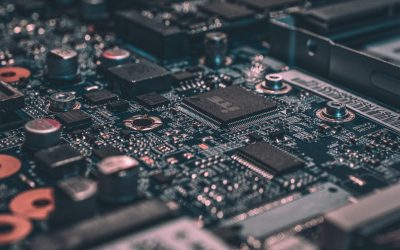Healthcare has undergone a transformation because to electronic health records (EHRs), which have streamlined procedures and improved patient care. This technological advancement has had a big impact on home healthcare systems as well, enabling in-home healthcare providers and healthcare facilities to provide effective care. In this blog post, we’ll look at the definition of EHR and talk about how it helps medical facilities and home healthcare providers deliver top-notch treatment to patients in the convenience of their own homes.
Understanding Electronic Health Records (EHRs):
Electronic Health Records, often used interchangeably with Electronic Medical Records (EMRs), are digital versions of patients’ medical records. EHRs contain comprehensive and up-to-date health information, including medical history, diagnoses, medications, treatment plans, test results, and more. These records are securely stored and accessible to authorized healthcare providers, ensuring continuity of care across different healthcare settings.
Benefits of EHRs in Home Healthcare:
- Enhanced Care Coordination and Communication: EHRs play a pivotal role in facilitating seamless communication and coordination among various healthcare providers involved in a patient’s care. In home healthcare, where interdisciplinary collaboration is crucial, EHRs enable real-time information sharing, reducing the chances of miscommunication or gaps in care. Home healthcare workers can access and update patient records, enabling timely interventions and improving overall care quality.
- Improved Accessibility and Timeliness of Information: With EHRs, home healthcare workers have instant access to patients’ complete medical histories, including medications, allergies, and prior diagnoses. This comprehensive information empowers caregivers to make well-informed decisions, avoid potential medication errors, and provide personalized care. EHRs also enable immediate documentation and timely updates, ensuring accurate and up-to-date records for each patient.
- Efficient Care Planning and Documentation: EHR systems provide home healthcare workers with tools for streamlined care planning and documentation. Care plans can be customized based on the unique needs of each patient, ensuring individualized and patient-centered care. Automated documentation features, such as pre-populated templates and voice recognition, save time and improve accuracy, enabling caregivers to focus more on direct patient care.
- Seamless Transition of Care: For patients receiving care both at home and in other healthcare settings, EHRs facilitate smooth transitions and continuity of care. Home healthcare workers can access relevant information from hospitals, clinics, or specialists, allowing them to provide appropriate and well-coordinated care. This comprehensive view of a patient’s health history helps prevent duplicative tests or treatments and ensures that all healthcare providers are working with the most up-to-date information.
- Efficient Medication Management: EHRs in home healthcare enable accurate medication management. Caregivers can access medication lists, dosages, and instructions, reducing the risk of medication errors. EHR systems can also generate alerts for drug interactions, allergies, and potential adverse reactions, ensuring patient safety.
- Enhanced Data Analysis and Reporting: EHRs in home healthcare systems facilitate data analysis and reporting. This offers valuable insights into patient outcomes, trends, and overall quality of care. Medical organizations can utilize this data to identify areas for improvement, implement evidence-based practices, and enhance care delivery strategies.
Conclusion
Home healthcare systems have been altered by electronic health records (EHRs). This allow caregivers to provide high-quality treatment with more accuracy and efficiency. Enhanced care coordination, prompt access to patient information, simplified paperwork, painless care transitions, improved prescription management, and data-driven insights are some of the advantages of EHRs in home healthcare. The provision of individualized and efficient care to patients in the comfort of their own homes holds great potential for the future of home healthcare as EHR systems continue to progress.










